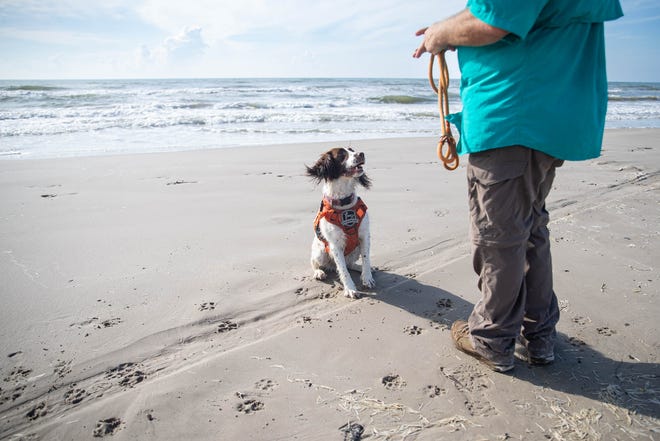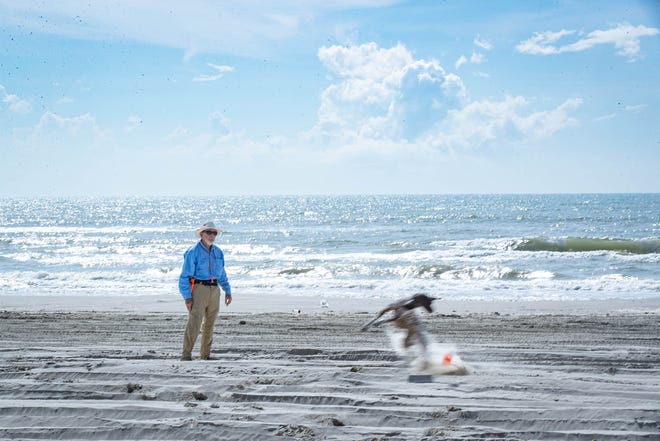
Texas A&M University-Corpus Christi researchers train dogs to detect oil on the beach
- Post by: Chiron
- August 15, 2022
- Comments off
When Poppy hits the beach, she turns her discerning nose to sniffing out oil.
The English springer spaniel, one of several oil-detecting canines in the country, can lead her trainer and handler, Paul Bunker, to oil more quickly and efficiently than any team of humans could, even finding oil underground.
But Poppy hasn’t been taught the difference between the fresh crude oils of an oil spill and naturally occurring weathered oil in the form of tar balls. That’s where Bin comes in.

Bin, a German shorthaired pointer, was trained this spring to detect crude oil specifically.
“That’s the only dog in the world that’s trained to do this job,” Bunker said.
With funding from the Texas General Land Office, Texas A&M University-Corpus Christi’s Center for Coastal Studies is working to support Bin and to train members of the public to house and handle oil detection dogs to serve the Texas coast.
Bunker owns Chiron K9, a canine consultancy company in San Antonio. He began discussing how dogs might be used to detect oil with oil spill expert Ed Owens years ago. With funding from the American Petroleum Institute, they showed that dogs can detect oil in the field.
Bunker’s dogs have been deployed on projects across the country and in Canada. But in Texas, the state general land office had a concern.
“One of the concerns of the TGLO was that if we brought an oil spill response dog after an incident, because there’s so much natural oil on the beach, we’d spend all day just responding to stuff that already existed instead of the actual fresh oil,” Bunker said.
The current study, funded by the GLO and conducted in partnership with A&M-Corpus Christi, focuses on training specialized dogs.

It was Bunker who brought the project idea to the university after conversing with the state office, Center for Coastal Studies research specialist Aaron Baxter said.
The state is providing $270,000 over the course of two years. Bunker and Texas Tech University’s canine olfaction research and education lab, where the dogs receive initial detection training, are subcontractors in the project.
Another dog, Luna, will be joining the team this summer. She will also be trained to ignore tar balls and focus on crude oil. The research team will be looking for a local volunteer handler to adopt Luna and support the GLO and A&M-Corpus Christi project.
Another dog, Luna, will be joining the team this summer. She will also be trained to ignore tar balls and focus on crude oil. The research team will be looking for a local volunteer handler to adopt Luna and support the GLO and A&M-Corpus Christi project.
 Olivia Garrett
Olivia Garrett